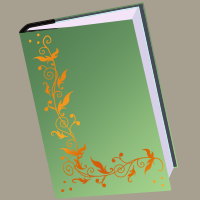May 28, 2025
To:Scott_Abrams
Thanks for your criticism. I agree regarding the spelling and grammatical errors. Although I am fluent in English, I don't use it daily. It is not my mother tongue.
Based on your critical comments and assumptions, it is safe to assume that you have read at least the first three chapters. If you have, then it would also strike me how you have interpreted the story so far. Clearly, I did not mention the setting of the story; however, it is heavily implied, and as for the time, again, it is heavily implied if you had gone on to read the story. I trust my readers' intellect to catch on to the time and place of the story.
In fact, none of the names mentioned in the story are exclusively European, except Owen. And he is the only one who is a foreigner to the land.
And based on chapter one, I did not mention anything particularly European. The ball and the gowns are not exclusively European; I only described the scene. You just assumed it was European because it is a stereotype to think that these kinds of luxuries exist only in Europe, but if you had read a Japanese story, you wouldn't question the time or place because it is implied by the names, attitude, and culture.
This is exactly what I have done. In fact, if you paid attention to the names, you would know that Seren is a common name in Turkey, Syria, and Lebanon. Bala is a Turkic name, and Seren did not completely reject the food, only some, and did not verbally reject anything. As for honorifics, they are used respectfully, not as a serious statement.
Now answering your questions:
What is the time?
While the Alice in Wonderland statement was only there because I personally like the story, there is no major significance to it. But it is true that the story was in the 1800s.
Where did it take place?
It is on Earth.
The exact place?
I chose to keep it ambiguous but heavily implied it is a Syrian, Turkish, and Lebanese setting because, first, that's my culture, and second, these lands have a lot of microcultures; putting them in one clear land will cause unnecessary stereotypes, and this is something I am actively trying to fight.
Whenever there is a Middle Eastern interpretation, it is always racist and simply not true. Ironically enough, you actually assumed that if she came from a culture of "halal/kosher" food, then she must not have rights, but she actually has a lot of rights; it is part of the culture.
As for the confusion on the culture and language barrier, if this can help you: think Ottoman Empire. True Turkish was taught everywhere, but there were still different kinds of people. And as for Seren’s status, she is in fact the daughter of the head of a clan that is responsible for the military. But again, if I were to use the actual terms, then firstly, people will stereotype, and secondly, it would confuse some as to why they have a lot of power. But the truth is, clans—especially big clans like Seren's—have a lot of power, so that they can change policies. And since you assumed it was in Europe, a lot of things you criticised do not exist, because it is not in Europe. But I am glad that you mentioned some of the topics, because a good chunk of them are answered in the story if you were to read it. However, I understand it might not be your cup of tea.
Finally, the culture and traditions in these lands are known, but they are practiced differently. For example, some might wear hijabs in front of their cousins, and some wouldn't, and that's why some would not know that the Seren family still practices these traditions. I think you might not behave similarly to your traditions because they are "old-fashioned," so you would think that others wouldn't do it either. Also, holding hands is purposeful because that is the point—they know, but they don't care, except for the masked guy. There are a lot of questions that could be answered, but that would be a history lesson, so I will stop here.
One last thing: I do agree with you; it does need to be revised, since I was not satisfied with the results due to the time I had, which led me to cut important stuff.
This story is not about a damsel in distress or a slay queen.
It is about achieving the characters' goal through teamwork.
And most importantly, it is a story, not a documentary. There is creative liberty because, historically speaking, she would probably get married to her cousin—end of the story—and no one wants to read a hyper-realistic, boring, everyday story.
Again, I appreciate your care and attention to the story.


